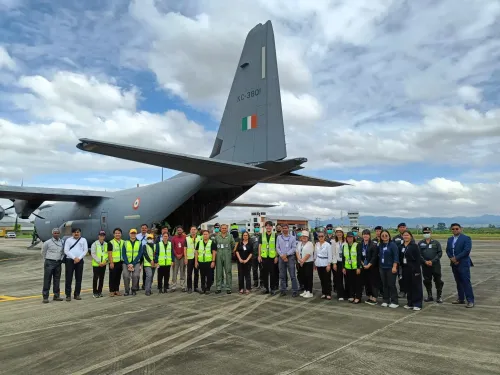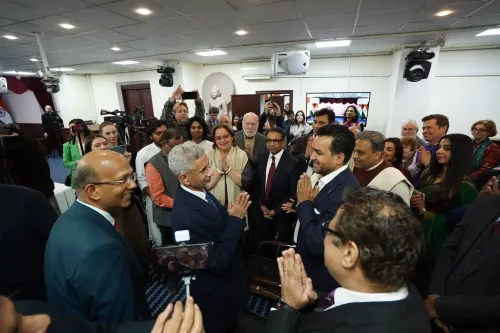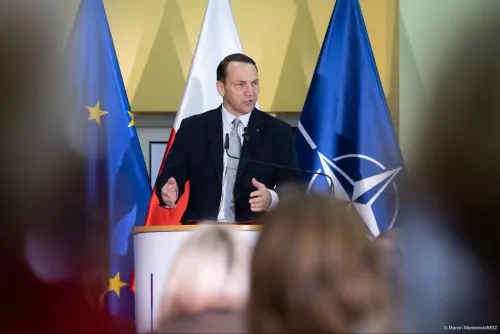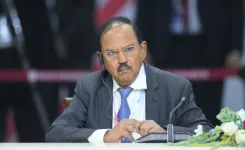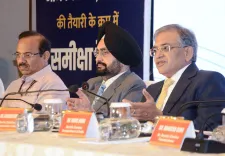How Can South Korea Address US Visa Issues for Investors?
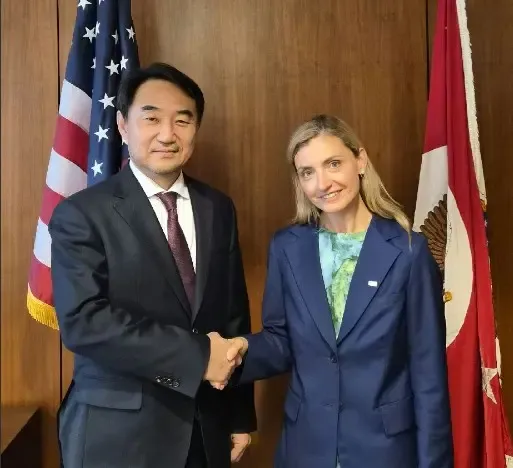
Synopsis
Key Takeaways
- US visa processes for Korean investors need improvement.
- A bilateral visa working group has been formed.
- There is a focus on strengthening economic cooperation.
- Recent events have highlighted challenges for South Korean businesses.
- Diplomats are optimistic about the future of US-South Korea relations.
Seoul, Nov 19 (NationPress) A high-ranking diplomat from South Korea has emphasized the urgent need to enhance US visa processes for Korean enterprises investing in the United States, labeling such initiatives as vital for maintaining the momentum in bilateral collaboration, according to a statement from the country's foreign ministry on Wednesday.
Jung Ki-hong, the Ambassador for Public Diplomacy, made these comments during a meeting with Michael DeSombre, the US Assistant Secretary of State for East Asian and Pacific Affairs, in Washington on Tuesday (local time), as reported by Yonhap News Agency.
The discussions focused on facilitating the stable operation of South Korean companies in the US, particularly in light of the follow-up actions required after over 300 Korean workers were apprehended and detained during a US immigration raid in Georgia earlier in September.
This incident has prompted the establishment of a bilateral visa working group to tackle the challenges faced by Korean businesses aiming to enter the US market.
In a separate engagement, Jung also met with Sarah Rogers, Under Secretary of State for Public Diplomacy, where they exchanged ideas on enhancing cooperation regarding exchanges and various public diplomacy initiatives, both bilaterally and trilaterally with Japan, according to the ministry.
Last week, officials from South Korea and the US expressed optimism about the trajectory of their evolving relationship, referring to it as a “model” and “forward-looking” alliance, while they celebrated the Korean National Day and Armed Forces Day in Washington.
This show of confidence in the long-standing alliance came a day after Seoul and Washington released a joint fact sheet outlining comprehensive agreements on security, trade, and other areas, alleviating uncertainties in their bilateral relations and ending speculation about delays in its publication.
The celebration was attended by prominent figures, including South Korean Ambassador to the United States Kang Kyung-wha, US Under Secretary of Defense for Policy Elbridge Colby, Assistant Secretary of State for East Asian and Pacific Affairs Michael DeSombre, and Vice Chairman of the Joint Chiefs of Staff Gen. Christopher Mahoney.
The event took place at the Andrew W. Mellon Auditorium, a historic venue significantly noted as the location where the North Atlantic Treaty was signed in 1949, establishing the transatlantic alliance during the Cold War.
“It’s particularly fitting that we gather today to celebrate the ROK-US alliance, recognized as a model alliance. For over seven decades, it has been a cornerstone for peace and prosperity on the Korean Peninsula and globally,” she stated. ROK refers to South Korea's official name, the Republic of Korea.
“With new administrations in both Seoul and Washington, the alliance is entering a new era as a comprehensive strategic partnership spanning security, economics, and advanced technology,” she added.
Kang highlighted the advancements in bilateral relations, particularly the recent conclusion of a trade agreement between the two nations.
“Following intensive negotiations after the August summit, our trade and industry authorities achieved a significant breakthrough on tariffs—an accomplishment that fortifies our economic and technical partnership,” she remarked.
Addressing the global appeal of Korean culture, including music and cuisine, the ambassador emphasized the role of cultural ties in strengthening connections between the people of both nations.
“Culture is a powerful language that brings us closer and enhances the very fabric of our partnership,” she stated.
Colby praised South Korea for its recent commitment to increasing its defense spending to 3.5% of its gross domestic product, underscoring the Trump administration's preference for partnerships over dependencies.
“I echo Ambassador Kang's statements ... South Korea is indeed a model ally, and it's especially relevant today as President Lee and the Republic of Korea have shown their dedication, resources, and commitment,” Colby added.
“South Korea is now the first treaty ally of the US outside NATO to pledge adherence to the 3.5% standard set by President Trump at the Hague summit,” he continued.
DeSombre noted that the relationship fostered between President Lee Jae Myung and US President Donald Trump, along with the outcomes of their engagements, has further solidified the alliance between the two nations.
“President Trump and President Lee have elevated our relationship to unprecedented levels and provided a clear direction to enhance our positive momentum,” he concluded.


